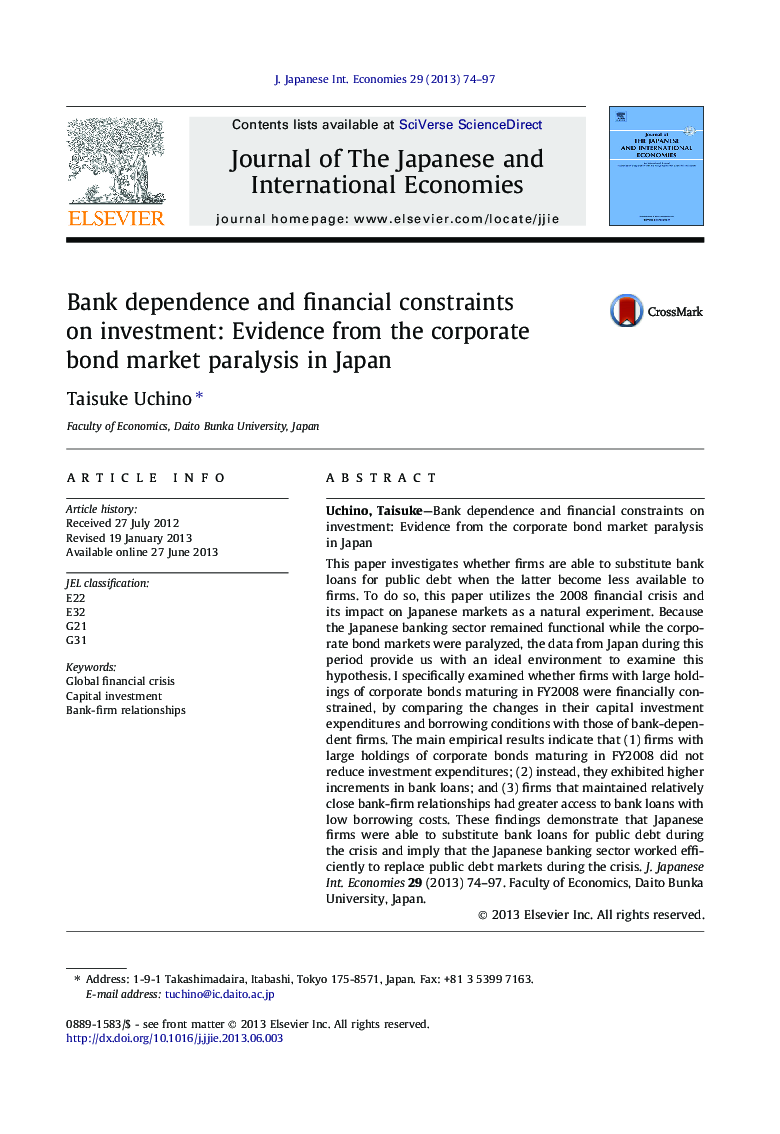| Article ID | Journal | Published Year | Pages | File Type |
|---|---|---|---|---|
| 965290 | Journal of the Japanese and International Economies | 2013 | 24 Pages |
Abstract
This paper investigates whether firms are able to substitute bank loans for public debt when the latter become less available to firms. To do so, this paper utilizes the 2008 financial crisis and its impact on Japanese markets as a natural experiment. Because the Japanese banking sector remained functional while the corporate bond markets were paralyzed, the data from Japan during this period provide us with an ideal environment to examine this hypothesis. I specifically examined whether firms with large holdings of corporate bonds maturing in FY2008 were financially constrained, by comparing the changes in their capital investment expenditures and borrowing conditions with those of bank-dependent firms. The main empirical results indicate that (1) firms with large holdings of corporate bonds maturing in FY2008 did not reduce investment expenditures; (2) instead, they exhibited higher increments in bank loans; and (3) firms that maintained relatively close bank-firm relationships had greater access to bank loans with low borrowing costs. These findings demonstrate that Japanese firms were able to substitute bank loans for public debt during the crisis and imply that the Japanese banking sector worked efficiently to replace public debt markets during the crisis.
Related Topics
Social Sciences and Humanities
Economics, Econometrics and Finance
Economics and Econometrics
Authors
Taisuke Uchino,
